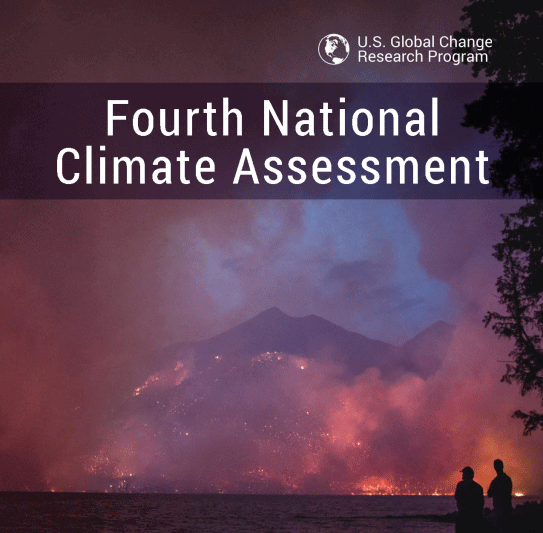Colgate Alumni Present Work on National Climate Assessment

Alumni and Climate Change
Three Colgate alumni discussed how they played integral roles in assembling the Fourth National Climate Assessment on Thursday, January 31.
The three alumni, Ellen Mecray ’90, David Reidmiller ’01 and Natalie Bennett ’16 visited Colgate to present the findings of the latest National Climate Assessment (NCA4) at a talk entitled “The Climate Dilemma: Findings, Impacts and Actions from the Fourth National Climate Assessment.”
The National Climate Assessment program is part of the United States’ Global Change Research Program, which was first established in 1989.
Reidmiller described the report as “policy-relevant, not policy-prescriptive,” stating it is therefore written for the general public.
One key change in this new report is a focus on case studies that detail specific responses by American communities. This approach helps create a stronger narrative throughout the report and balances out the distressing statistics predicting sea level rise, an increase in extreme weather events and rising temperatures, Reidmiller said.
The Fourth National Climate Assessment is split into two volumes. The first, entitled the “Climate Science Special Report” was released on November 3, 2017, and focuses on amalgamating climate research and making predictions for the future. Most predictions are run through two scenarios: a scenario that involves action and a worst case scenario. Since scientists first began using these prediction methods around ten years ago, the world has more closely followed the “worst case scenario” predictions.
The second volume, which came out in November of 2018, is more focused on social science and provides a guide to taking action within individual communities. Narratives of community mobilization celebrate those who are already making progress and encourage others to follow in their footsteps.
First-year student Ashley Bound said the event was eye-opening.
“I had no idea [about] the amount of work and data collection that went into writing those reports, and that there are so many volunteers involved,” Bound said.
Having aimed to become carbon neutral this year, Colgate is one community mobilizing against climate change. Pamela Gramlich, a program coordinator at the Office of Sustainability said that Colgate should achieve this goal within the next few months.
Colgate has strengthened its focus on sustainability as part of its future-focused bicentennial plan. This carbon neutrality mission involves sustainably and locally sourced food, alternative transportation and the purchasing of high-quality carbon offsets.
Students interested in this topic are encouraged to get involved with Colgate’s Office of Sustainability. Details of both volumes of the NCA4 can be found online.
Contact Elizabeth Shaw at [email protected].
Elizabeth Shaw is a senior from Washington, D.C., concentrating in anthropology and museum studies. She has previously served as an assistant editor for...






